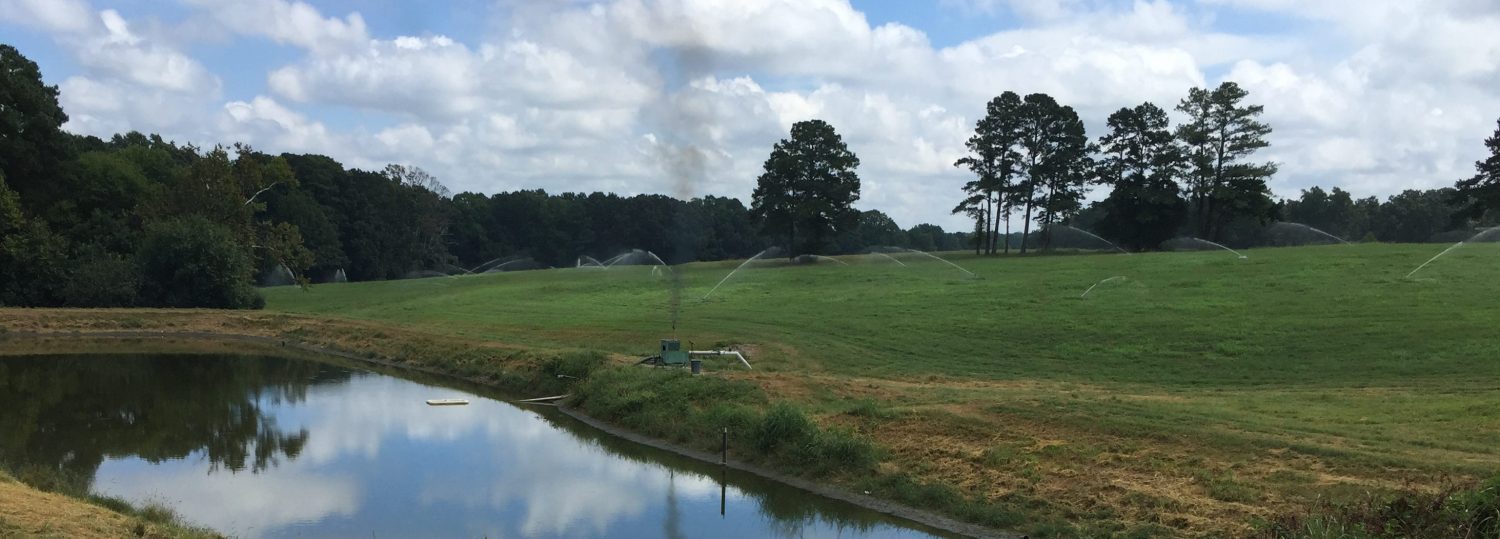
Animal Waste Management
Animal agriculture is an important contributor to North Carolina’s economy. The pork and poultry sectors generate billions of dollars to the state’s agriculture industry and employs thousands of North Carolinians. In addition to producing meat, eggs, and milk, animal agriculture also generates byproducts that include manure (urine and feces), spilled feed, storm water, and mortality (expired animals). These byproducts are often referred to as “waste” because
- they are not economically valuable
- they are generated in large volumes beyond their use on farm
- they are costly to treat
- they can result in environmental and health problems when mismanaged
Typically, animal waste is land-applied as fertilizer to provide nutrients to growing crops and grasses and to maintain soil structure and microorganisms. However, the accumulation of animal waste on a farm or in a region beyond its capacity can lead to challenges to farm operations and to the well-being of nearby ecosystems and communities.
Animal waste management aims to address these challenges in several ways.
Reducing waste-related environmental and health problems
Animal waste can lead to air, soil and water quality problems. In addition, pathogens in animal waste can lead to contamination. These challenges can be targeted through comprehensive measures using:
- diet and ration improvement
- odor control measures such as biofilters, wind barriers, lagoon covers with gas capture/burning
- adopting biological and thermal treatment technologies such as anaerobic digestion (AD), composting, and incineration
Developing value-added products from waste
Researchers are continuously working to produce value-added products efficiently from animal waste to replace traditional alternatives. Such products include renewable energy and fuels, organic fertilizer, and compost, in addition to new chemicals and products.
Reducing waste volumes
Waste volume can be reduced using different strategies. Composting is a volume reduction process suited for solid waste like poultry litter and mortality. In liquid waste, the volume can be effectively reduced by separating out the nutrients using separation methods and additives. This separation offers flexibility in using the larger part of the waste (the liquid) for irrigation purposes without concerns of over fertilization.
Reducing the cost of waste treatment
The cost of waste treatment is a key challenge facing animal agriculture. Researchers in this area seek to overcome this challenge by developing valuable products using low-cost inputs and technologies. Adopting mobile or centralized systems can help reduce the cost of animal waste treatment. Developing markets for these waste-derived products is necessary to ensure the economic viability of the treatment systems.
Extension provides education about the benefits of proper animal waste management, and also provides research and outreach to improve our understanding of the different treatment and processing technologies available and how to select from them. We are continuously conducting research and demonstration studies to improve the technical, economic and environmental performance of animal waste management in NC.
Additional Resources
NC State Extension Animal Waste Management portal
NC Animal and Poultry Waste Management Center (APWMC)
Archived BAE Animal Waste Management site

